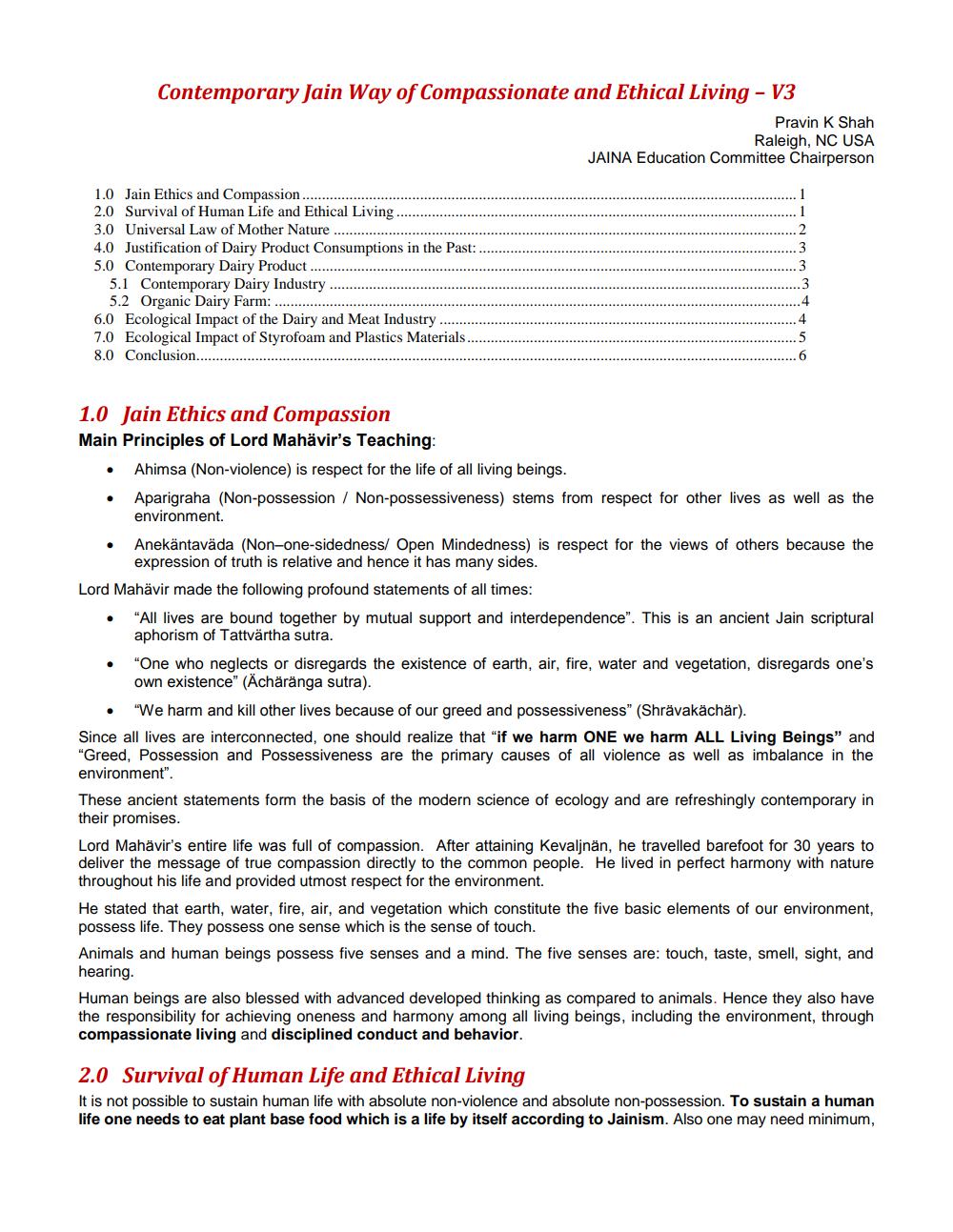Book Title: Contemporary Jain Way of Compassionate Living V1 Author(s): Pravin K Shah Publisher: JAINA Education Committee View full book textPage 1
________________ Contemporary Jain Way of Compassionate and Ethical Living - V3 Pravin K Shah Raleigh, NC USA JAINA Education Committee Chairperson ا س 1.0 Jain Ethics and Compassion. 2.0 Survival of Human Life and Ethical Living 3.0 Universal Law of Mother Nature ........ 4.0 Justification of Dairy Product Consumptions in the Past:.. 5.0 Contemporary Dairy Product ........... 5.1 Contemporary Dairy Industry .................. 5.2 Organic Dairy Farm: 6.0 Ecological Impact of the Dairy and Meat Industry .............. 7.0 Ecological Impact of Styrofoam and Plastics Materials ..... 8.0 Conclusion نا ذرا ذرا ز ......................... ط ا د 1.0 Jain Ethics and Compassion Main Principles of Lord Mahävir's Teaching: • Ahimsa (Non-violence) is respect for the life of all living beings. Aparigraha (Non-possession / Non-possessiveness) stems from respect for other lives as well as the environment. Anekäntaväda (Non-one-sidedness/ Open Mindedness) is respect for the views of others because the expression of truth is relative and hence it has many sides. Lord Mahävir made the following profound statements of all times: • “All lives are bound together by mutual support and interdependence". This is an ancient Jain scriptural aphorism of Tattvärtha sutra. • "One who neglects or disregards the existence of earth, air, fire, water and vegetation, disregards one's own existence" (Achäränga sutra). • "We harm and kill other lives because of our greed and possessiveness" (Shrävakächär). Since all lives are interconnected, one should realize that "if we harm ONE we harm ALL Living Beings" and "Greed, Possession and Possessiveness are the primary causes of all violence as well as imbalance in the environment". These ancient statements form the basis of the modern science of ecology and are refreshingly contemporary in their promises. Lord Mahävir's entire life was full of compassion. After attaining Kevaljnän, he travelled barefoot for 30 years to deliver the message of true compassion directly to the common people. He lived in perfect harmony with nature throughout his life and provided utmost respect for the environment. He stated that earth, water, fire, air, and vegetation which constitute the five basic elements of our environment, possess life. They possess one sense which is the sense of touch. Animals and human beings possess five senses and a mind. The five senses are: touch, taste, smell, sight, and hearing Human beings are also blessed with advanced developed thinking as compared to animals. Hence they also have the responsibility for achieving oneness and harmony among all living beings, including the environment, through compassionate living and disciplined conduct and behavior. 2.0 Survival of Human Life and Ethical Living It is not possible to sustain human life with absolute non-violence and absolute non-possession. To sustain a human life one needs to eat plant base food which is a life by itself according to Jainism. Also one may need minimum,Page Navigation
1 2 3 4 5 6
